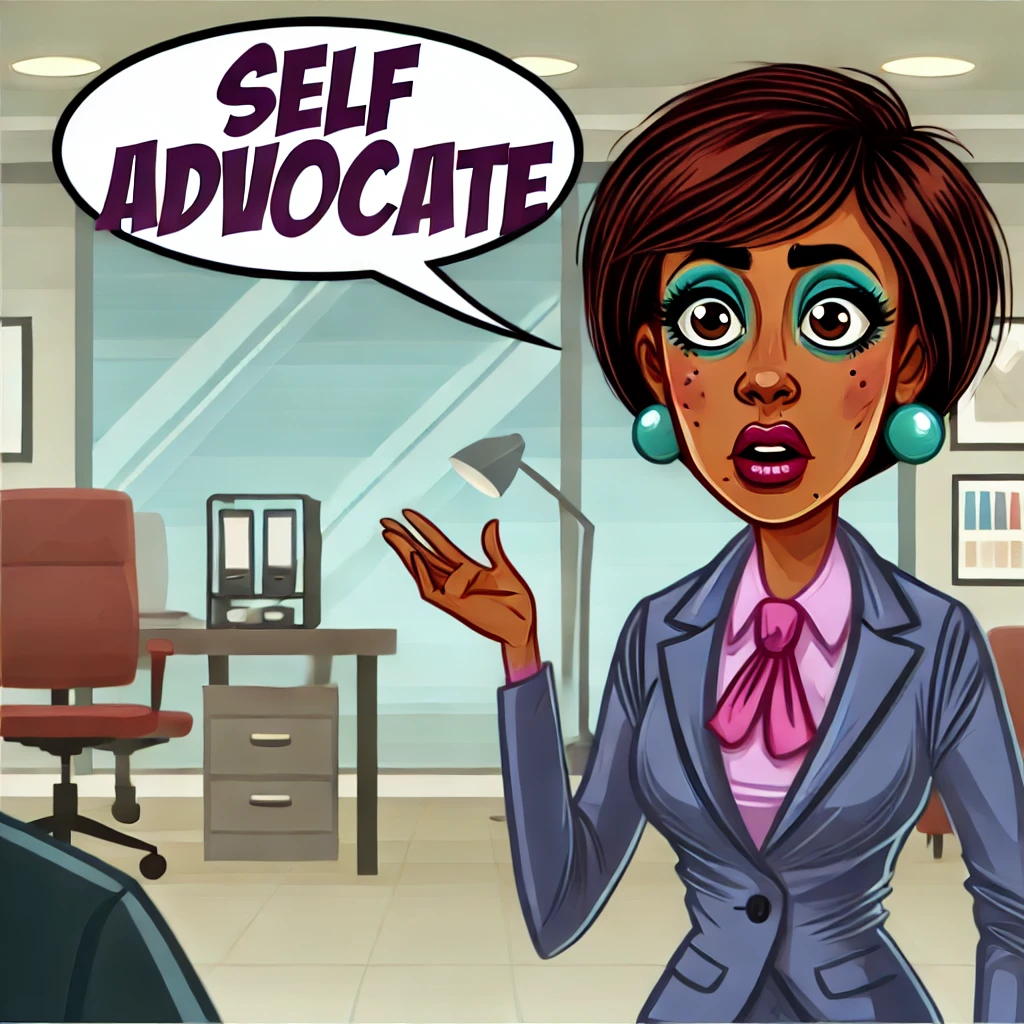How to Disclose ADHD in the Workplace and Ask for Accommodatiosns
Whether you need accommodations or simply want your team to understand how you work best, this step-by-step guide for how to disclose ADHD in the workplace will help you confidently navigate the process. Disclosing ADHD at work can feel intimidating, but it’s a step that might lead to a more supportive and productive environment.
Why Should You Disclose ADHD at Work?
Deciding to disclose ADHD is deeply personal, and there’s no one-size-fits-all answer. Here are some common reasons why people choose to do so:
- To request accommodations that help you succeed (e.g., flexible scheduling, noise-canceling headphones).
- To explain certain behaviors or challenges that might otherwise be misunderstood.
- To foster better communication and build understanding with your manager or team.
- To ensure your employer meets their legal obligation to provide reasonable accommodations.

Step-by-Step Guide for How to Disclose ADHD in the Workplace
Step 1: Clarify Why You’re Disclosing
Before starting the conversation, know your "why." What’s your primary goal?
- Do you need specific accommodations, like extra reminders or a quieter workspace?
- Are you trying to explain behaviors like forgetfulness or difficulty concentrating during long meetings?
- Do you want to foster better collaboration with your manager?
Knowing your purpose will help you stay focused and confident during the conversation.
Step 2: Know Your Rights
It’s important to understand the legal protections available to you as an employee with ADHD:
- In the U.S., ADHD is covered under the Americans with Disabilities Act (ADA), which requires employers to provide reasonable accommodations.
- In the UK, ADHD is protected under the Equality Act 2010, which ensures workplace adjustments for those with disabilities.
You don’t need to disclose your entire medical history, but be prepared to explain how ADHD affects your work and what adjustments you need to thrive.

Reflection prompt: What specific changes would make my workday easier or more manageable?
Step 3: Decide Who to Tell
Decide who needs to know based on your work environment and goals. Options might include:
- Your HR representative handles accommodations and policies ( usually recommended as the first step).
- Your manager, if they directly support your needs and you feel comfortable sharing with them.
Keep the conversation private and disclose only to those directly involved in implementing accommodations.
Step 4: Gather the Necessary Paperwork
Having proper documentation can streamline the process:
- ✓Check if your company requires specific forms or paperwork for accommodations.
- ✓Request documentation from your doctor, therapist, or psychiatrist.
- ✓Write down examples of how ADHD affects your work (e.g., "I struggle with multitasking during high-stress periods").
- ✓Ask for help from your coach or therapist if necessary
Step 5: Pick the Right Time

Timing can make a big difference in how the conversation goes:
- ✓Avoid high-stress times, like performance reviews or tight deadlines.
- ✓Schedule the meeting for a calm period when the person you’re speaking with can give their full attention.
Step 6: Plan What to Say
Approach the conversation with clear, solution-focused language.
Example: “I have ADHD, which makes it difficult to focus in noisy environments. I want to discuss adjustments to help me work more effectively.”
- Highlight your strengths: ADHD often comes with unique abilities, such as creative problem-solving or high energy during brainstorming.
- Be specific about your needs, such as:
- Flexible work hours.
- Tools like task management apps.
- A quieter workspace or noise-canceling headphones.
Reflection prompt: What strengths and solutions can I highlight to frame this as a collaboration and support to help me contribute?
Step 7: Schedule a Formal Meeting
Send a formal request to HR or your manager, framing the meeting as a discussion about improving your work performance. This shows that your goal is to be proactive and productive, not to place blame.
Step 8: Stay Focused During the Meeting
Stick to what’s necessary:
- Explain how ADHD affects your work in clear, professional language.
- Avoid over-sharing personal details or framing ADHD as a weakness.
- Emphasize how the adjustments will help you perform your job better and meet expectations.
Step 9: Collaborate on Solutions
Be open to discussing various accommodations. Your employer may have ideas that hadn’t occurred to you. Keep the focus on finding solutions that help you and the organization succeed.
Step 10: Document and Follow Up
After the meeting, send a follow-up email summarizing the conversation. This creates a clear record of what was discussed and agreed upon. Keep copies of all correspondence in case issues arise later.
Step 11: Monitor and Adjust Accommodations
Accommodations might need tweaks as you use them:
- Track what’s working well and where there’s room for improvement.
- Communicate with HR or your manager if adjustments are needed to better support your work.
Reflection prompt: Am I noticing positive changes? If not, what might need to change for these accommodations to be more effective?
Final Thoughts
Disclosing ADHD in the workplace is a personal choice, and it’s okay to take your time deciding what’s best for you. Remember, asking for accommodations isn’t about asking for special treatment—it’s about creating a work environment where you can meet your potential without the unnecessary barriers you've been putting up with .

Reflection prompt: How can I approach this conversation with confidence in my strengths and kindness toward myself?
With preparation and self-advocacy, you can take control of the disclosure process, ensuring that your needs are met in a way that benefits both you and your employer.
FAQs On How to Disclose ADHD
1. Should I disclose my ADHD during the hiring process?
You’re not required to disclose ADHD during hiring and it's not recommended unless the company is highering you because of your neurodiverisity,
2. Can my employer deny my request for accommodations?
Employers are required to provide reasonable accommodations under laws like the ADA or Equality Act unless it creates undue hardship for the company.
3. What if my manager reacts negatively to my disclosure?
Seek support from HR or consult legal resources. Employers are legally obligated to address your concerns without discrimination.
4. How can I ensure my disclosure remains confidential?
HR and management must keep medical disclosures private. If confidentiality is breached, report it to the appropriate authority.
5. Do I need proof to request accommodations for ADHD?
Yes, documentation from a medical professional is typically required to validate your request for accommodations.
6. What accommodations are common for ADHD in the workplace?
Standard adjustments include flexible hours, noise-canceling tools, task prioritization help, and private workspaces.



